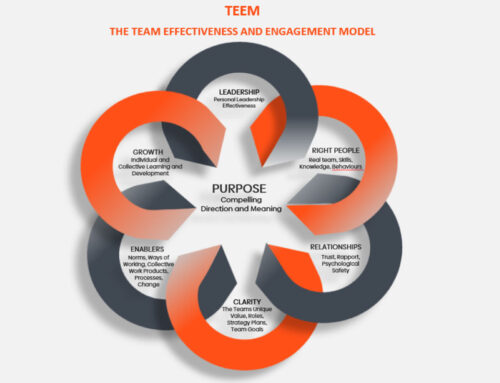
Leaders are often asked to navigate a whirlwind of challenges – from market fluctuations and global uncertainty to internal organisational shifts. While the landscape of leadership has evolved dramatically since ancient Greece, the Stoic philosophy, developed over 2,000 years ago, remains an invaluable guide for modern executives. Stoicism offers powerful insights into resilience, decision-making, and maintaining mental clarity in the face of adversity – qualities that every leader now needs to thrive.
1. Embrace What You Can Control
In the boardroom, executives face countless variables – economic forces, market trends, and human behaviours – that lie far beyond their control. Stoicism emphasises a crucial distinction: focus your energy on what you can control and accept what you cannot. For leaders, this means concentrating on strategic decision-making, communication, and the culture within the organisation, while letting go of the need to micromanage outcomes. This mindset reduces unnecessary stress and allows for more effective leadership by ensuring attention is directed toward areas where impact is possible.
2. Cultivate Resilience
Resilience is an essential trait for modern executives, and the Stoics were masters at building mental toughness. They viewed adversity not as an obstacle, but as an opportunity for growth and self-improvement. Today’s C-suite leaders can benefit from this mindset by reframing setbacks – whether a failed project, market downturn, or internal challenge – as valuable learning experiences. In an era of constant disruption, cultivating resilience allows executives to adapt swiftly, lead confidently, and inspire their teams in the face of challenges.
3. Practice Self-Reflection
Leaders are expected to make complex decisions, often with incomplete information. To do this effectively, Stoicism advises the practice of self-reflection. Regular introspection – whether through journaling or mindfulness – creates space to evaluate past decisions, clarify personal values, and ensure that leadership actions align with long-term goals. By developing the habit of reflection, executives can lead more intentionally, with a clear vision that guides both personal and organisational growth.
4. Manage Expectations
It’s easy for leaders to become fixated on external metrics of success – revenue targets, market share, and prestige. While these are important, Stoicism reminds us to manage expectations. High expectations, when unmet, can lead to disappointment and burnout. Instead, focusing on what you can control—such as fostering innovation, ethical decision-making, and team development – builds lasting success. This Stoic principle also encourages executives to find fulfilment in the process of leadership, rather than constantly chasing the next external reward.
5. Practice Virtue Ethics
Ethics in leadership is a hot topic, with stakeholders increasingly holding executives accountable for their actions. The Stoics emphasised virtues such as wisdom, courage, justice and temperance – values that are just as critical in the C-suite today. By making virtue-driven decisions, executives can foster a culture of integrity within their organisations, which strengthens relationships with employees, customers, and investors. An additional perspective in current times is a wider diversity of thought and composition of teams. When leaders prioritise ethical behaviour over short-term gains, they build long-term trust and success.
6. Develop Gratitude
In the relentless pursuit of success, executives often overlook the value of gratitude. Stoicism teaches us to appreciate the present and recognise what we already have. For leaders, this means valuing your team, your achievements and the resources at your disposal. Gratitude not only enhances personal well-being but also creates a positive atmosphere within the organisation, motivating teams and fostering loyalty.
7. Control Your Reactions
The pressure of leadership often comes with high-stakes decisions and intense scrutiny. In these moments, the Stoic principle of controlling your reactions is invaluable. While you cannot control external events, you can control how you respond to them. Whether dealing with a critical business failure or a public relations crisis, maintaining composure, staying calm, and making measured decisions are hallmarks of effective leadership and emotional intelligence. And it also builds the confidence and trust of your team, in your capacity to remain calm in adversity.
Stoicism is about living a good life, grounded in purpose, resilience, and virtue. For Leaders, this philosophy offers more than just ancient wisdom – it provides a practical framework for thriving in the modern complex world. By embracing what you can control, practising resilience, and leading with integrity, Stoicism can guide leaders toward not only professional success but also personal fulfilment and well-being.
David Gwynne, ECI Partners
September 2024
To connect with us about executive coaching please contact us here.


